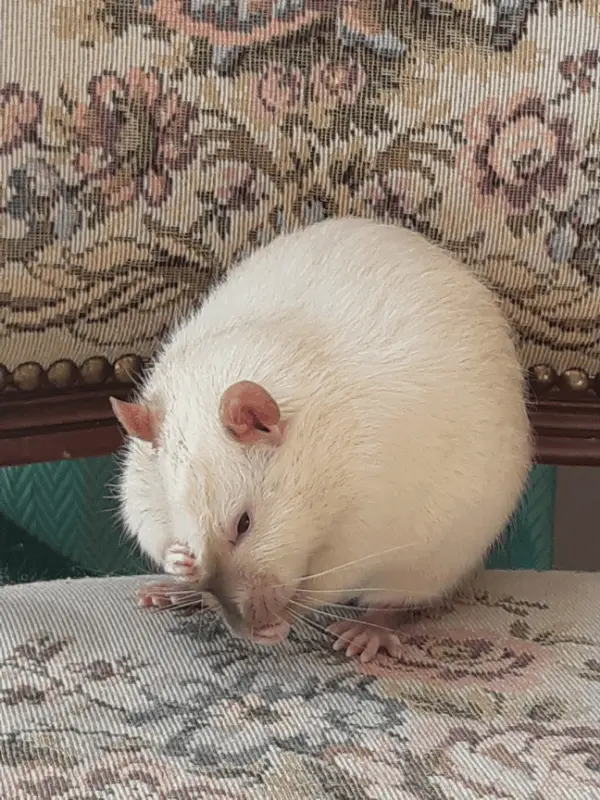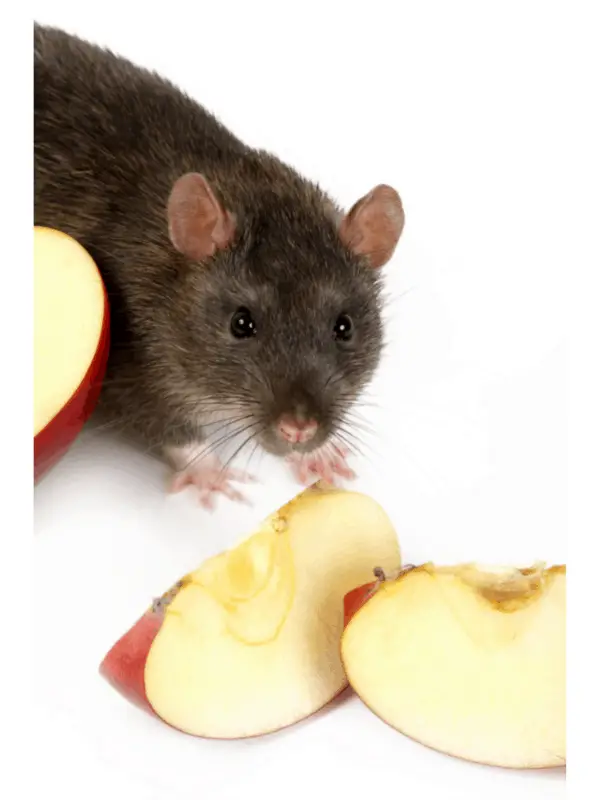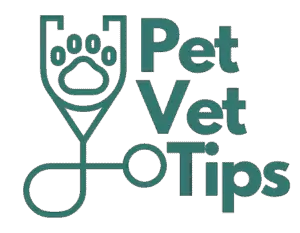This article contains affiliate links, and we may earn a commission at no cost to you if you choose to purchase through these links. I never recommend products that I do not trust or will not advise my veterinary clients and patients to use.
Rats like food, a lot! And if you’ve owned a pet rat for some time now, you might have noticed that the critter is starting to look a bit on the heavy side and you have read somewhere that obesity is a major health problem in pet rats that have startled you a little.
So, will pet rats overeat? Yes, pet rats can over-eat themselves. They are instinctually programmed to eat anything and everything they can scavenge in the wild and because pet owners often provide pet rats with an abundance of food, they will continue to devour everything they can get their tiny hands-on.
Now that you know that rats can actually overeat themselves, you may wonder, have you overfed them then? How much is too much? What will happen to your rat if he continues to overeat himself? In this article, we will explore these important questions so that you can be sure to avoid these common mistakes first-time rat parents often make.

Why Do Pet Rats Overeat?
Although domesticated rats are seen as pets, you have to understand that they are still very closely related to wild rats and are therefore still biologically engineered in the same way. Wild rats are scavengers but also prey animals, they need to find food quickly and efficiently whilst avoiding predators. They thus do not have a lot of time to be picky on what they want to eat and are never sure where their next meal will come from.
Wild rats will therefore stuff their faces on anything they can find and their bodies have adapted to the idea that they will need to store the excess nutrients and calories as body fat that can later be utilized again when food is scarce.
Now you can take the rat out of the wild, but you cannot take the wild out of the rat. If you, therefore, continue to provide delicious fatty foods ad-lib, your pet rat will literally feast himself to death, as you will not be able to overcome his instinctive nature to devour anything he can find.
What Risks Are Involved With Overeating In Rats?
The most common risk of overeating in rats is obesity, but this can also escalate and predispose them to more severe health risks, including cancer, diabetes, heart failure, bumblefoot, joint problems, decreased learning ability, fertility problems and ultimately, a shortened life expectancy.
Rats are most active when searching and scavenging for food, and when they are overfed, they tend to get lazy and will therefore become much less active. This does not help to shake off those extra calories and make them even more prone to developing the above conditions.
How Much Do You Need To Feed Your Pet Rat?
Rats will need approximately 12 to 20 grams of food that can be spread out as one to two meals per day. This does vary with age, sex, and exercise levels, so I will recommend starting with 16 grams per day and see how it goes. If you notice that you need to throw away a lot of old food or you find food items hidden away at different places in their cage, it usually means that you are giving too much food, so you can cut back a little. If you notice your rat looks underweight and constantly searching for food after his meal, then you can add a bit.
What Can I Feed My Pet Rat?
Pet rats will do well on rat-specific commercial pelleted food (we recommend Harlan & Teklad or Oxbow), that has a high fiber and low-fat ratio. Be careful of feeding them seeds, as they may quickly become picky which can lead to imbalanced nutrition. Snacks can be given in moderation, but try to limit them and only use healthy food.
Fruits and vegetables such as carrots, spinach, broccoli, apples, potatoes, kale, parsley, squash, and bananas are safe and great additions to your pet rat’s diet. A whole boiled egg in the shell, hard-shelled nuts, chew sticks, and a cooked large pork or beef soup bone with a little leftover meat on it will also be great for wearing down those ever-growing teeth.
Be careful of fruit treats such as strawberries, grapes, blueberries, and avocado as rats will happily hoard these items which can cause them to become moldy and therefore toxic to your pet.

What Should I Avoid Feeding My Pet Rat?
Some types of food can also be harmful to your pet rat, so avoid feeding him chocolate, raw beans, raw sweet potato, cabbage, green potatoes, sugary treats, caffeinated beverages, carbonated drinks, green bananas, and poppy seeds.
It is important to know that rats have a very poor gag reflex and are therefore unable to burp or vomit. So do not give them anything sticky like peanut butter or toffee that may get stuck in their throats. You will not be able to help him if he chokes on it and this can potentially lead to a sad death.
How To Prevent Your Pet Rat From Overeating?
Even though the main reason that pet rats get obese is because of their natural instinct to devour what they can find, the fact that they are obese cannot be blamed on biology.
When taking a rat out of the wild and putting it under your custody, it is your responsibility as a pet owner to look after them and to make sure that you create an environment that is suitable for them to be healthy, and this includes their diet.
Restrict their diet
Your pet rat will require a fixed amount of food based on its age which should consist of balanced nutrients and calorie restrictions. Essential nutrients to look out for including essential amino acids, vitamins (B12 and D), minerals (calcium, copper, iron, and zinc), and omega 3 fatty acids.
Food items such as fruits, vegetables, grains, cooked liver, and nuts make great food, but must be given in moderation.
Monitor their weight
The normal weight of a female rat is between 250 and 400 grams, and of a male rat between 300 and 600 grams. Obesity is difficult to determine in rats because of the large difference between minimum and maximum weight and because it is not as easy to diagnose obesity by just palpating the rat as it is in other species. The best way would be to inspect your rat visually, as most fat deposits will be found around the belly, the hips, and the buttocks.
Rats metabolize their food much faster when they are younger than when they are older. This is why it is important to monitor your pet rat’s weight so that you are able to identify impending obesity before it gets too serious and beyond your control. This will also help you to decide the amount and types of food that can be given to your rat during the different stages of its life cycle.
Make sure they get enough exercise
As mentioned earlier, rats that get fat will become lazy, and if there is not enough stimulation around them in their environment they will be very reluctant to exercise. So make sure your rat has a big enough living space, whether it is a big cage, a multi-level cage, tunnels, chew toys, a spinning wheel, or simply daily time out of their cage where they can roam around the room or the house.
You can also help them by playing games that involve a great deal of running around, as this will help keep them in shape and form a closer bond with their hooman. Instead of just dumping all their food into their bowl during mealtime, spread it out as small heaps at different locations in the room. This will encourage them to scavenge their food like in the old days, and generally, once they felt like they have eaten enough, they will stop as moving around does take up energy and this will in turn help curb overeating.
Conclusion
Pet rats are not too different from their wild counterparts, and when provided with an abundance of food, coupled with little to no exercise. they can easily become obese, which in its turn, can give rise to a number of other serious health conditions.
You, as a responsible pet owner, must therefore keep a close eye on your pet rat’s diet, monitor their weight, and make sure that there is enough stimulation within their environment to encourage plenty of exercise.
